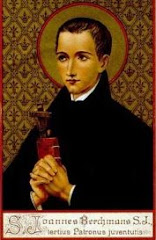FOOD FOR THOUGHT- Communion on the hand? Why?
'Out of reverence towards this Sacrament, nothing touches it but what is consecrated.'
- Have you noticed a change in the way the Catholic Church receives and administers Holy Communion from the way it once was?
- Do you remember when Catholics always knelt for Holy Communion?
- Do you remember when Catholics received Holy Communion on the tongue only?
- Do you remember when only the priest administered Holy Communion?
- Do you remember our priests and sisters teaching us it was sacrilegious for anyone but the priest to touch the Sacred Host?
- Do you remember when tabernacles were always on the center of the altar as the primary focal point?
- Why has kneeling for Holy Communion disappeared?
- Why are tabernacles disappearing from the center of the Churches and placed on the side?
- Why are people receiving Communion in the hand?
- Why are there communion-ministers of the Eucharist?
- Why were these things changed?
- If things were changed for the sake of "modern times" and "modern men", has it resulted in record crowds of "modern men" flocking into the Churches to pray and receive the Sacraments?
- Do we have record turnouts in our seminaries, monasteries, and convents?
- Has the introduction of these new things increased the amount of vocations in the Church?
- Has the introduction of these new things increased the amount of converts coming into the Church?
- Was there a "vocation crisis" before these essential and fundamental things were changed?
- Was there more faith in the Real Presence before the "renewal?"
- Was there a deeper and greater understanding and appreciation of the Blessed Sacrament as really and truly being the Body, Blood, Soul, and Divinity of Jesus Christ under the appearance of bread and wine?
- Were the old rubrics simply "over scrupulous?"
- Did the old rubrics and strict laws safeguarding reverence, dignity, and holiness, not express the Catholic Faith regarding the Blessed Sacrament properly?
- Do we now understand and believe in it in a different manner, and this is therefore manifested by the actions of first the clergy, then the laity?
- Are we afraid to adore the Sacred Host?
- Are we ashamed to adore the Sacred Host?
- Is it any coincidence that Benediction of the Blessed Sacrament began to fade away more and more with the introduction of Communion in the hand and communion ministers of the Eucharist?
- Has Catholic teaching changed regarding TRANSUBSTANTIATION, that is, the changing of the bread and wine into the Body, Blood, Soul, and Divinity of Jesus Christ during the Sacrifice of the Mass?
- If the teaching has not changed, why has attitude, spirit, rubrics and practice changed?
- Where did Communion in the hand come from since it is nowhere proposed or even mentioned in the documents of Vatican II?
- Why did it still come about on a worldwide scale even after Pope Paul VI in his 1969 letter to the Bishops, "Memoriale Domini" stated "This method, 'on the tongue' must be retained?"
- If it is supposed to be "optional", why are the little children in most parochial schools taught no other way than receiving in the hand as "this is the way it is done?"
- Why is there a new attitude of "anyone can handle it?"
- Have we created a "vicious circle" or a "cause and effect" situation where radical changes are introduced, vocations drop as a result, and then more changes such as "lay ministers of the Eucharist" are introduced appealing to their need because of the "vocation crisis?"
The results of Communion in the hand and the Novus Ordo have caused a major crisis in the Catholic Church. The New York Times reported that when Catholics were asked, in a Times-CBS news poll, what best describes their belief about what happens to the bread and wine at Mass, most chose the answer that the bread and wine are "symbolic reminders of Christ" over the answer that they are "changed into the Body and Blood of Christ". The official Church teaching, which we must believe in order to be saved, is this: "The Eucharistic presence of Christ begins at the moment of the consecration and endures as long as the Eucharist species subsist. Christ is present whole and entire in each of the species and the whole and entire in each of their parts, in such a way that the breaking of the bread does not divide Christ."
.jpg)
























